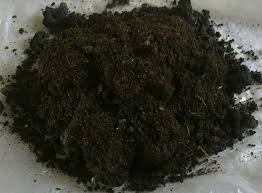
Dic . 04, 2024 07:43 Back to list
Top Organic Fertilizers to Boost Growth in Hydroponic Plant Systems
The Best Organic Fertilizer for Hydroponic Plants
Hydroponics is an innovative and sustainable method of growing plants without soil, utilizing nutrient-rich water solutions instead. While hydroponic systems allow for precise control over plant nutrition, the choice of fertilizer remains critical for achieving healthy, vibrant plants. When selecting the best organic fertilizer for hydroponic plants, it’s essential to consider various factors, including nutrient balance, solubility, and environmental impact.
Understanding Hydroponics and Nutrient Needs
In hydroponics, plants are fed directly through their roots in a solution that contains all the essential nutrients they require for growth. The primary macronutrients are nitrogen (N), phosphorus (P), and potassium (K), with secondary macronutrients like calcium (Ca), magnesium (Mg), and sulfur (S) also playing crucial roles. Additionally, plants need micronutrients such as iron (Fe), manganese (Mn), zinc (Zn), copper (Cu), molybdenum (Mo), and boron (B) in smaller quantities.
Organic fertilizers come from natural sources and can provide a range of nutrients necessary for plant growth. However, they often require careful consideration in hydroponic systems due to their composition and how they dissolve in water.
Top Organic Fertilizer Options for Hydroponics
1. Fish Emulsion This liquid fertilizer is made from fish waste and is rich in nitrogen, making it an excellent choice for leafy greens and vegetative growth. Fish emulsion is typically diluted with water before application, ensuring it integrates well into a hydroponic solution. Additionally, it promotes beneficial microbial activity in the growing environment.
2. Seaweed Extract Derived from various types of seaweed, this organic fertilizer offers a broad spectrum of micronutrients and growth hormones. Seaweed extract can enhance root development, increase resistance to stress, and improve overall plant health. It’s usually available in liquid form and can be added directly to hydroponic systems.
3. Compost Tea A nutrient-rich solution made by steeping compost in water, compost tea is an excellent way to supply a range of nutrients and beneficial microorganisms to hydroponic plants. It’s important to use well-decomposed compost to prevent any solids from clogging the system. Compost tea can enhance nutrient uptake and improve plant resilience.
best organic fertilizer for hydroponic plants

4. Worm Castings Known for their rich nutrient profile, worm castings are an excellent organic amendment. While they are typically solid, they can be brewed into a tea for easier application in hydroponics. Worm castings provide essential nutrients and improve soil structure and microbial activity, benefiting plant growth.
5. Molasses While not a complete fertilizer, molasses is a great organic supplement that provides carbohydrates for beneficial microorganisms in the system. These microbes can enhance nutrient availability and uptake by plants. It's often used in conjunction with other organic fertilizers for maximum effect.
Considerations When Using Organic Fertilizers
While organic fertilizers can be highly beneficial for hydroponic systems, users should be aware of a few considerations
- Solubility Ensure that the organic fertilizers you choose dissolve well in water to prevent clogging and optimize nutrient absorption. - Nutrient Ratios Different plants have varying nutrient needs. It’s essential to match the fertilizer’s nutrient profile to the specific plant you are growing. - Monitoring pH and EC Organic fertilizers can affect the pH and electrical conductivity (EC) of the nutrient solution, so regular monitoring is crucial for maintaining optimal growth conditions.
- Microbial Life Introducing organic fertilizers can foster a healthy microbial community that enhances nutrient availability but can also compete with plant roots for nutrients if not managed properly.
Conclusion
Choosing the right organic fertilizer for hydroponic plants is vital for their successful growth and development. Options such as fish emulsion, seaweed extract, compost tea, worm castings, and molasses can provide comprehensive nutrition while promoting a healthy growing environment. By carefully selecting and managing these organic fertilizers, hydroponic gardeners can achieve thriving, vibrant plants that are not only healthy but also environmentally sustainable.
-
10 10 10 Fertilizer Organic—Balanced NPK for All Plants
NewsJul.30,2025
-
Premium 10 10 10 Fertilizer Organic for Balanced Plant Growth
NewsJul.29,2025
-
Premium 10 10 10 Fertilizer Organic for Balanced Plant Growth
NewsJul.29,2025
-
Premium 10 10 10 Fertilizer Organic for Balanced Plant Growth
NewsJul.29,2025
-
50 Pound Bags of 13-13-13 Fertilizer for All Plants – Bulk & Organic Options
NewsJul.28,2025
-
High-Efficiency 15-30-15 Granular Fertilizer for Healthy Crops
NewsJul.28,2025
